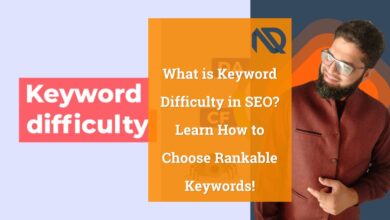What are Social Signals?
Social Signals are interactions and engagements on social media platforms—such as likes, shares, comments, retweets, and mentions—that reflect user engagement with content. These signals serve as indicators of content popularity and brand visibility and are considered indirect factors in search engine optimization (SEO), influencing rankings by driving traffic, engagement, and social trust.
Social signals manifest in various forms, including likes and reactions, which indicate approval or sentiment; shares and retweets, which extend content reach by distributing it across networks; and comments, providing feedback, opinions, or questions. Other types include mentions and tags, where brands or individuals are referenced, and content saves, where users bookmark posts for later reference. Follows and subscribes signal growth in audience size, while click-throughs and video views measure user interactions with specific links or video content. Social signals also encompass poll participation, votes, and direct messages, reflecting deeper user involvement.
These signals occur across platforms such as Facebook (likes, comments, shares, and reactions), Twitter (retweets, mentions, hashtags, and likes), Instagram (likes, comments, saves, and story shares), LinkedIn (reactions, shares, and profile views), and YouTube (likes, comments, shares, and watch time). Other platforms include Pinterest (pins and saves), TikTok (likes and video views), Reddit (upvotes, comments, and shares), Snapchat (story views and screenshots), and even private platforms like WhatsApp, where shares occur in chats or groups.
Content types generating social signals include text posts, images, videos, and infographics, designed to engage audiences. Interactive formats like polls and surveys, live streams, and stories or reels drive immediate user engagement, while user-generated content (UGC) and collaborations with influencers amplify reach and social proof.
Social signal metrics, such as engagement rate (interactions relative to audience size), click-through rate (CTR), shares-to-likes ratio, and time spent on posts, provide insights into audience behavior. Comment sentiment analysis further reveals audience opinions and feedback. From an SEO perspective, social signals contribute to traffic generation, backlink creation, and improved brand authority. Content shared socially can attract backlinks and help with indexation boosts by signaling search engines about its relevance. Higher click-through rates from socially shared content improve visibility in search results.
Several tools and techniques help track and enhance social signals. Platforms like Google Analytics measure referral traffic, while social media management tools (e.g., Buffer, Hootsuite) track post performance and schedule content. Social listening tools (e.g., Brandwatch, Sprout Social) monitor brand mentions, and URL shorteners (e.g., Bitly) provide click data for shared links. Collaboration with influencers via influencer platforms helps expand reach and drive engagement.
Challenges in leveraging social signals include low organic reach due to algorithmic restrictions, engagement drop-off from content saturation, and managing negative feedback on posts. Adapting to platform-specific trends, maintaining consistent branding, and addressing measurement complexity are ongoing considerations. Ethical practices, such as avoiding fake engagement (e.g., purchased likes or followers) and complying with data privacy regulations, are essential to maintaining credibility.
The long-term benefits of social signals are significant. They boost brand awareness, foster community building, and drive consistent referral traffic. Social signals enhance reputation management by providing social proof, encourage content amplification, and serve as a feedback loop, offering insights for improving products or services. Enhanced credibility and customer trust result from authentic and sustained engagement.
To optimize social signals, engage with followers by responding to comments and messages, share high-quality content, and leverage hashtags for discoverability. Collaborating with influencers and running paid campaigns amplifies reach, while tracking analytics ensures strategies remain effective. Diversifying content types, staying updated on trends, and maintaining transparency in sponsored collaborations are key to sustained success.
A Thorough Overview!
Want SEO Consultancy for your project?
If you feel that you are lost in somewhere middle, I am here to help you with this.



